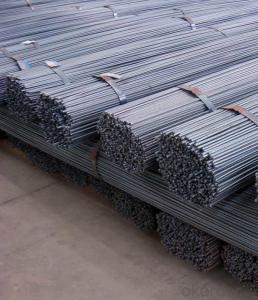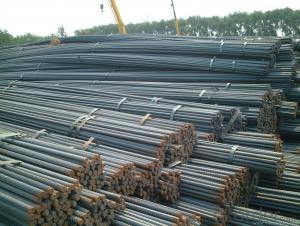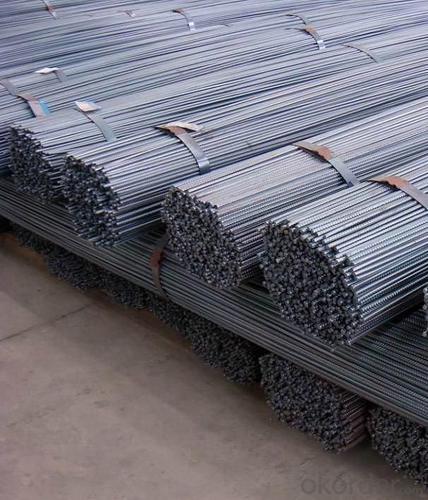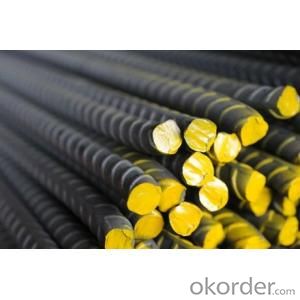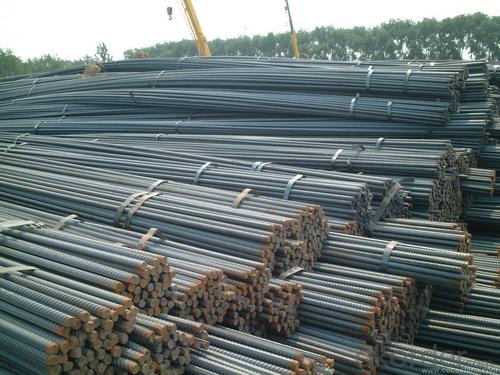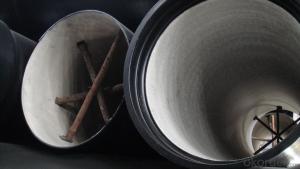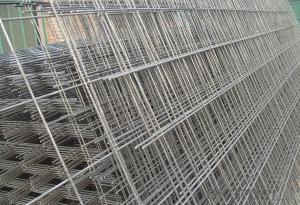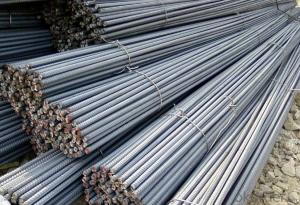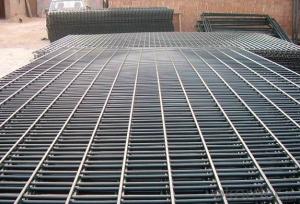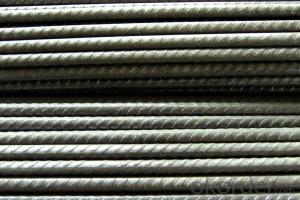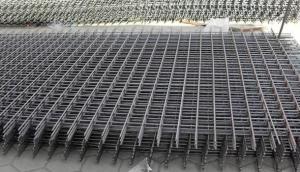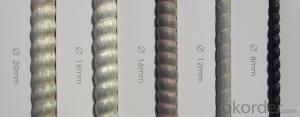Reinforcing Deformed Bar from 5.5mm to 32mm
- Loading Port:
- Tianjin
- Payment Terms:
- TT or LC
- Min Order Qty:
- 500 m.t.
- Supply Capability:
- 5000 m.t./month
OKorder Service Pledge
OKorder Financial Service
You Might Also Like
Reinforcing Deformed Bar from 5.5mm to 32mm
Structure of Reinforcing Deformed Bar :
Type | Deformed steel bar/ TMT bars | MOQ | 500 MT (Trial order accepted) |
Standard Grade | GB1499.2-2007, HRB335, HRB400, HRB500. BS4449/2005, B500A, B500B etc.. ASTM A615 Gr.40, Gr60, KS, SD400, SD500 and so on.. | ||
Technique | Hot rolled continuous casting | Length | 6, 9,12m, or as requested |
Size | 6mm-32mm | Payment terms | T/T, L/C at sight, Usance L/C |
Packing | In bundle | Inspection | Third party inspection accepted |
Trade terms | EXW, FOB, CFR, CIF | Trans terms | FIO, FILO, FLT |
Delivery time | 15-30 days, according to the quantity | Note | Customized service is available (for sizes,length and chemical components etc.). |
Main Features of Reinforcing Deformed Bar :
HRB335 | Chemical composition | C | Mn | Si | S | P |
0.17-0.25 | 1.0-1.6 | 0.4-0.8 | 0.045 Max. | 0.045 Max. | ||
Mechanical Property | Yield strength | Tensile strength | Elongation | |||
≥335 Mpa | ≥455 Mpa | 17% | ||||
HRB500 | Chemical composition | C | Mn | Si | S | P |
0.25 Max. | 1.6 Max. | 0.8 Max. | 0.045 Max. | 0.045 Max. | ||
Mechanical Property | Yield strength | Tensile strength | Elongation | |||
≥500 Mpa | ≥630 Mpa | 15% | ||||
Specifications and Datas of Reinforcing Deformed Bar :
Deformed steel bar | ||||
Diameter (mm) | Theoretical weight (kg/m) | Pieces/Mt (pcs) | Length (m) | Standard |
6 | 0.222 | 375 | 12 | GB1499-48, HRB335, HRB400, HRB500 BS4449-97, Gr.460B,B500
|
8 | 0.395 | 211 | ||
10 | 0.617 | 135 | ||
12 | 0.888 | 94 | ||
14 | 1.21 | 69 | ||
16 | 1.58 | 53 | ||
18 | 2 | 42 | ||
20 | 2.47 | 34 | ||
22 | 2.98 | 28 | ||
25 | 3.85 | 22 | ||
28 | 4.83 | 17 | ||
32 | 6.31 | 13 | ||
36 | 7.99 | 10 | ||
40 | 9.87 | 8 | ||
50 | 15.42 | 5 | ||
FAQ:
Why choose us:
1. More than 10 years experience in this industry
2. 100,000 tons exporting per month
3. Professional foreign trade team
4. OEM&ODM capacity
5. High quality assured & competitive price
6. Try our best to meet your needs & save your budget
7. Very popular in Southeast Asia, Africa, Mid-East and South America etc.
8. VIP membership system, first time customers and long-term cooperation customers can get extra discount on some products.
Pictures:
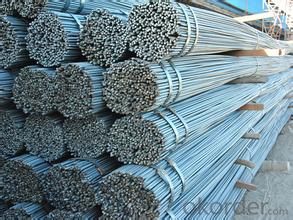
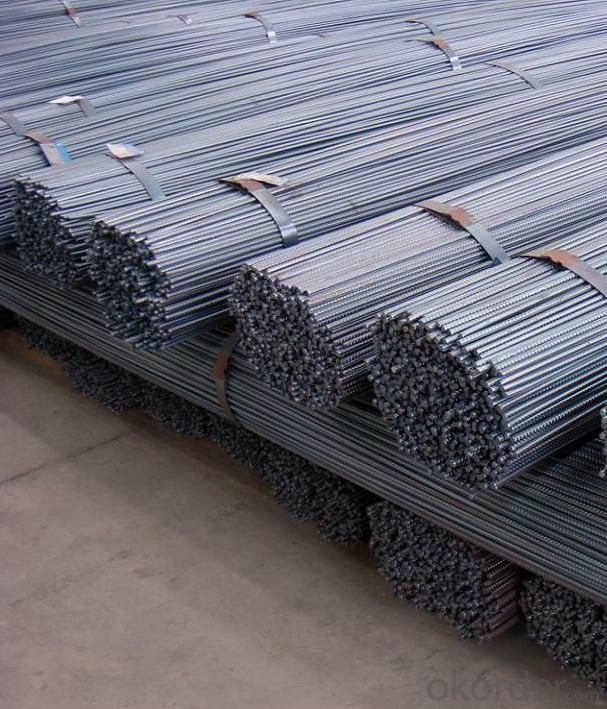
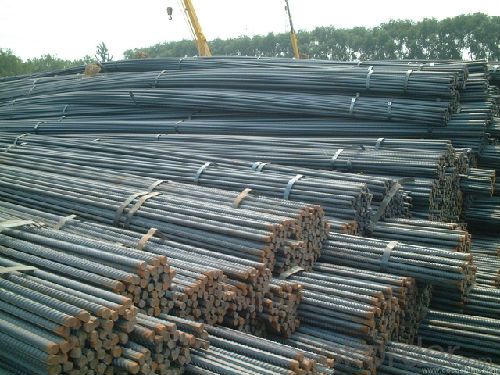
- Q: What are the lubricants for the installation of ductile iron pipes for tap water?
- When choosing lubricant, it is necessary to consider the movement of friction pairs, materials, surface roughness, working environment and working conditions, as well as the performance of lubricants. In mechanical equipment, lubricants are mostly distributed by lubrication to the parts that need lubrication.
- Q: Can ductile iron pipes be used for pressure relief systems?
- Yes, ductile iron pipes can be used for pressure relief systems. Ductile iron pipes are known for their strength, durability, and ability to withstand high pressures. They are commonly used in various applications, including pressure relief systems, where they can effectively handle and dissipate excess pressure to ensure the safety and functionality of the overall system.
- Q: How do ductile iron pipes handle extreme temperatures?
- Ductile iron pipes, also known as cast iron pipes, are known for their ability to handle extreme temperatures effectively. The material composition of ductile iron allows it to withstand both high and low temperatures without experiencing any significant damage or degradation. At high temperatures, ductile iron pipes exhibit excellent thermal resistance, making them suitable for applications where hot liquids or gases need to be transported. The high melting point of ductile iron, which ranges between 2060°C and 2200°C, ensures that the pipes can handle extreme heat without melting or deforming. This makes them ideal for use in industries such as oil and gas, steam distribution, and high-temperature water supply systems. Similarly, ductile iron pipes also perform well in low-temperature environments. They have a low coefficient of thermal expansion, meaning they can withstand the contraction and expansion that occurs during temperature fluctuations without cracking or fracturing. This makes them suitable for use in cold climates or applications that involve the transportation of chilled liquids or gases. Moreover, ductile iron pipes have excellent thermal conductivity, which allows them to quickly dissipate heat. This property is particularly important in high-temperature applications where efficient heat transfer is crucial to prevent damage to the pipes or the substances being transported. In summary, ductile iron pipes can handle extreme temperatures effectively due to their high melting point, low coefficient of thermal expansion, and excellent thermal conductivity. These properties make them a reliable choice for various applications that involve extreme temperature conditions.
- Q: Can ductile iron pipes be used in areas with high levels of organic matter in soil?
- Yes, ductile iron pipes can be used in areas with high levels of organic matter in soil. Ductile iron pipes have excellent corrosion resistance, making them suitable for various soil conditions, including those with high levels of organic matter. They are resistant to chemical attacks and offer long-term durability, making them a reliable choice for such environments.
- Q: What is the expected thrust restraint method for ductile iron pipes?
- Typically, to achieve the expected thrust restraint for ductile iron pipes, mechanical joint restraints are employed. These restraints are designed to counteract the axial forces or thrust caused by the fluid pressure within the pipe. Thrust blocks, tie rods, and harness restraints are the most commonly used types of mechanical joint restraints for ductile iron pipes. Thrust blocks are concrete structures strategically placed around the pipe joints to resist the thrust forces. They are typically constructed at bends, tees, and other directional changes to prevent pipe movement. Tie rods, on the other hand, are another frequently used method of thrust restraint. These involve steel rods that are anchored to the pipe and securely fastened to an immovable structure to counter the thrust forces. Harness restraints, however, are constituted by a series of steel rods or cables that encircle the pipe and are anchored to the ground on both sides. These restraints effectively distribute the axial forces along the pipe's length, preventing movement and ensuring stability. The choice of a specific thrust restraint method for ductile iron pipes may vary depending on various factors such as pipe diameter, fluid pressure, soil conditions, and local regulations. It is vital to consult industry standards, engineering guidelines, and local authorities to determine the appropriate thrust restraint method for a particular application.
- Q: What are the disadvantages of using ductile iron pipes?
- One disadvantage of using ductile iron pipes is their susceptibility to corrosion. Over time, exposure to moisture and various chemicals can cause the pipes to deteriorate and develop leaks. Another disadvantage is their relatively high cost compared to other pipe materials, such as PVC or HDPE. Additionally, ductile iron pipes are heavy and require specialized equipment for installation, which can increase labor and transportation costs.
- Q: Are ductile iron pipes resistant to chemicals?
- Yes, ductile iron pipes are generally resistant to chemicals. Ductile iron is a type of cast iron that has been alloyed with small amounts of magnesium to improve its strength and ductility. This alloying process enhances its resistance to corrosion and chemical attack. Ductile iron pipes have been widely used in various applications including water supply, wastewater treatment, and industrial piping systems where they may come into contact with a variety of chemicals. However, it is important to note that the resistance of ductile iron pipes to chemicals can vary depending on the specific type and concentration of the chemical involved. Therefore, it is advisable to consult the manufacturer or a qualified engineer to determine if ductile iron pipes are suitable for a particular chemical application.
- Q: Are ductile iron pipes suitable for sewer force mains?
- Yes, ductile iron pipes are suitable for sewer force mains. They have proven to be a reliable and durable choice for transporting wastewater under pressure. Their high tensile strength and resistance to corrosion make them ideal for withstanding the demanding conditions of sewer force mains.
- Q: What is the expected external protection system for ductile iron pipes?
- The expected external protection system for ductile iron pipes typically includes a combination of coatings and cathodic protection. Coatings, such as fusion-bonded epoxy (FBE) or polyethylene, are applied to the external surface of the pipe to provide a barrier against corrosion and protect it from the surrounding environment. These coatings are highly resistant to moisture, chemicals, and abrasion, ensuring the longevity of the pipe. In addition to coatings, cathodic protection is often employed to further enhance the external protection of ductile iron pipes. Cathodic protection involves the use of sacrificial anodes or impressed current systems to create a protective electrical current that counteracts the corrosive effects on the pipe's surface. This technique helps prevent corrosion by ensuring that the ductile iron remains in a cathodic state, where it is less prone to degradation. The combination of coatings and cathodic protection provides a robust and comprehensive external protection system for ductile iron pipes. These measures effectively safeguard the pipes from corrosion, extending their service life and minimizing the need for costly repairs or replacements. Regular inspection and maintenance are also essential to ensure the ongoing effectiveness of the external protection system and to address any potential issues promptly.
- Q: Are ductile iron pipes suitable for use in oil refineries?
- Yes, ductile iron pipes are suitable for use in oil refineries. They have excellent corrosion resistance and high tensile strength, making them ideal for transporting various fluids and gases in harsh environments such as oil refineries. Additionally, their flexibility and durability allow for easy installation and maintenance, ensuring reliable operations in refinery facilities.
Send your message to us
Reinforcing Deformed Bar from 5.5mm to 32mm
- Loading Port:
- Tianjin
- Payment Terms:
- TT or LC
- Min Order Qty:
- 500 m.t.
- Supply Capability:
- 5000 m.t./month
OKorder Service Pledge
OKorder Financial Service
Similar products
Hot products
Hot Searches
Related keywords
